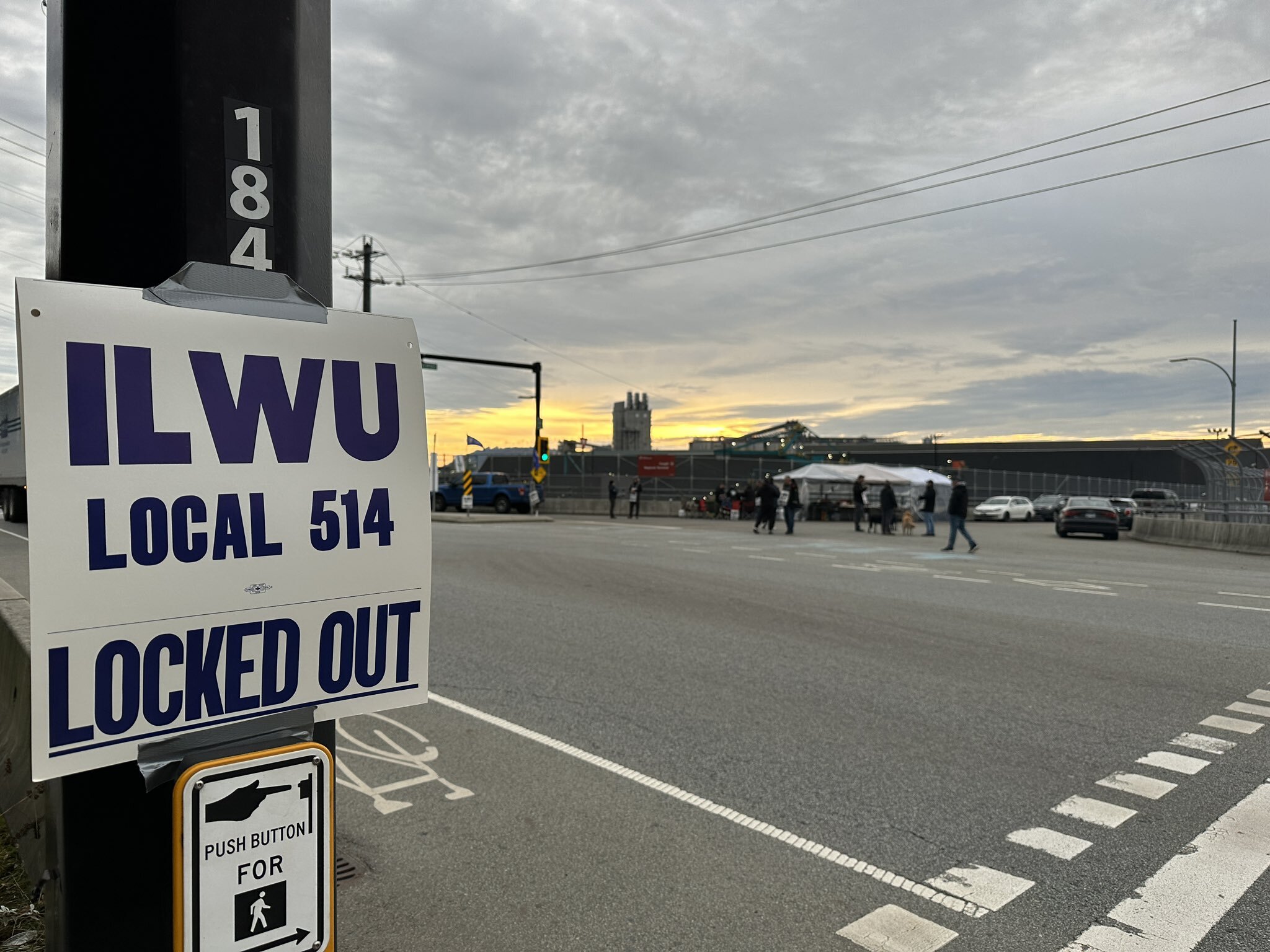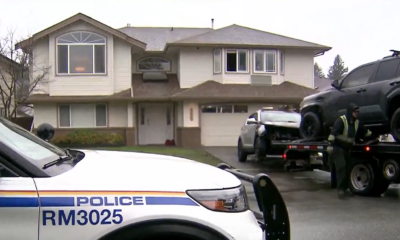Local News
Weekend talks scheduled between both sides in B.C.’s port dispute

After days of silence, there appears to be a breakthrough in the ongoing labour dispute affecting provincial ports.
Talks to help end the job action are scheduled for Saturday.
The lockout took effect on Nov. 4, and there are growing concerns from business owners about the threat of empty store shelves just weeks before the holidays.
Matt Poirier with the Retail Council of Canada says store owners feel helpless.
“We’re not seated at the table, yet we’re the ones bearing all the costs and the punishment of these delays. That’s the frustration that we have no means to resolve the issue,” he said.
The Canadian Federation of Independent Business (CFIB) isn’t happy either and is worried about a simultaneous labour dispute at ports in Montreal.
“How long can the government let the whole situation last? B.C. ports and the Port of Montreal need to be made fully operational immediately. Businesses cannot afford to have their revenue vanish due to lost trade, inventory and sales ahead of the peak holiday retail season,” said Vice President of National Affairs Jasmin Guenette.
“The longer these work stoppages last, the longer it will take for the backlog to clear and for supply chains to be fully restored. Canada’s economic growth remains slow. The federal government must take action, as the longer these work stoppages drag on, the greater the impact will be on Canada’s economy, productivity, and viability of many small businesses.”
The meeting comes after the International Longshore and Warehouse Union (ILWU) filed an unfair labour practice complaint against its employer, the BC Maritime Employers Association (BCMEA). It’s alleging a whole host of things, including threats, intimidation, coercion, and interference.
“The BCMEA has threatened to pull existing terms and conditions out of our last collective agreement and has communicated those threats directly to our members instead of following Canada Labour Code rules to negotiate with the union, not individual members,” said Union President Frank Morena. “Once again, the BCMEA is doing everything it can to push the federal government into intervening instead of doing its job to bargain a new contract.”
The federal government has been repeating its concerns all week.
Federal Labour Minister Steven McKinnon posted to X on Thursday afternoon, saying there was a lack of urgency to address the dispute.
“Public services, such as ports, exist to serve the needs of Canadians. It is with this in mind that the federal government supports these negotiations. The parties must reach an agreement quickly.”
The union and its employer had been in contract talks after the last contract expired in March 2023. They were getting help from a federal mediator before things broke down last week.
The BCMEA made its “final offer” last Wednesday, which included increased wages, benefits, and a signing bonus.
“The final offer includes a 19.2 per cent wage increase, which would enhance the median foreperson compensation from $246,323 to $293,617 annually, not including benefits and pension. On average, eligible workers would receive a cumulative lump sum payment of approximately $21,000, inclusive of signing bonuses and retroactive pay increases back to April 2023. Subject to the date of acceptance, the BCMEA will agree to accelerate and pay retroactivity and the signing bonus in full to each member by mid-December,” it said in a statement.
A 13-day port strike last July in B.C. led to roughly $10 billion in trade disruption.
Editor’s note: a previous version of this story referred to the ongoing labour dispute as a “strike.” In fact, the BCMEA has locked out members of the ILWU.












